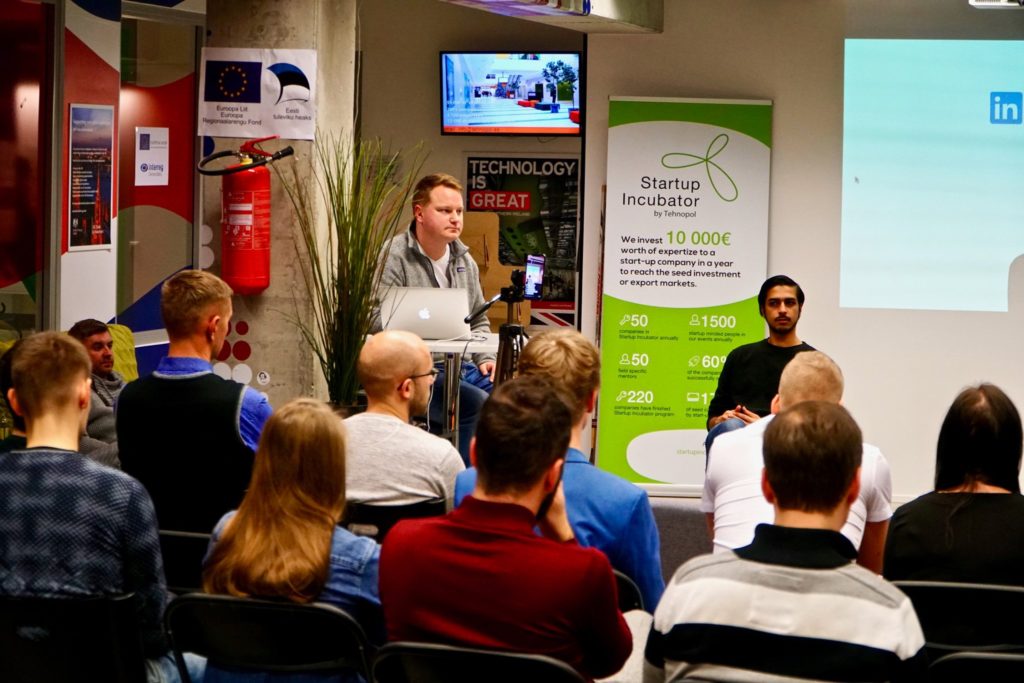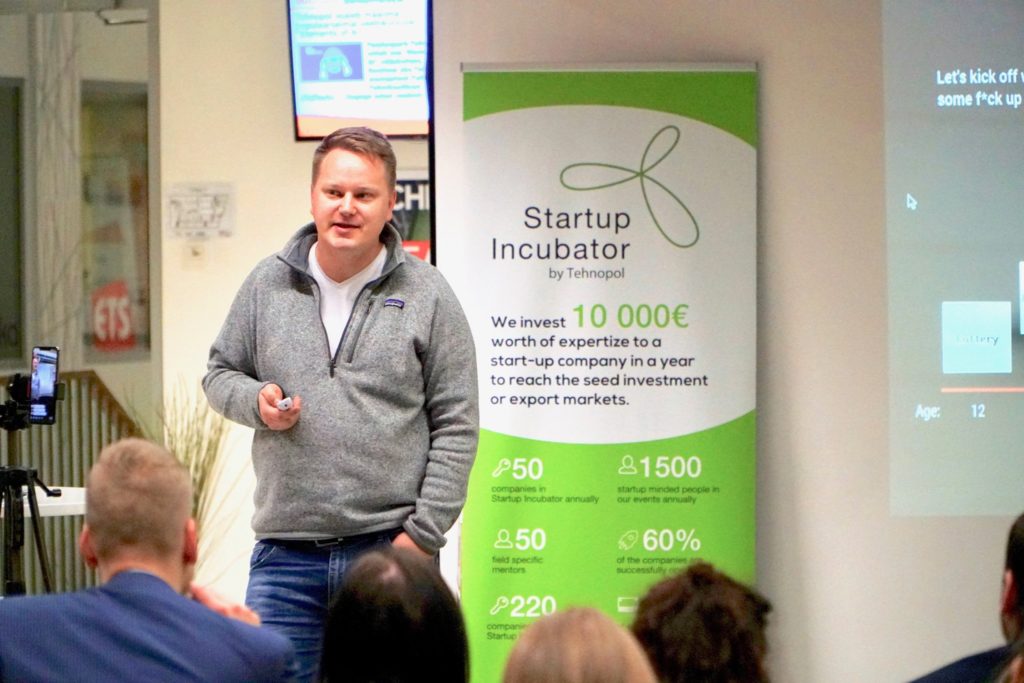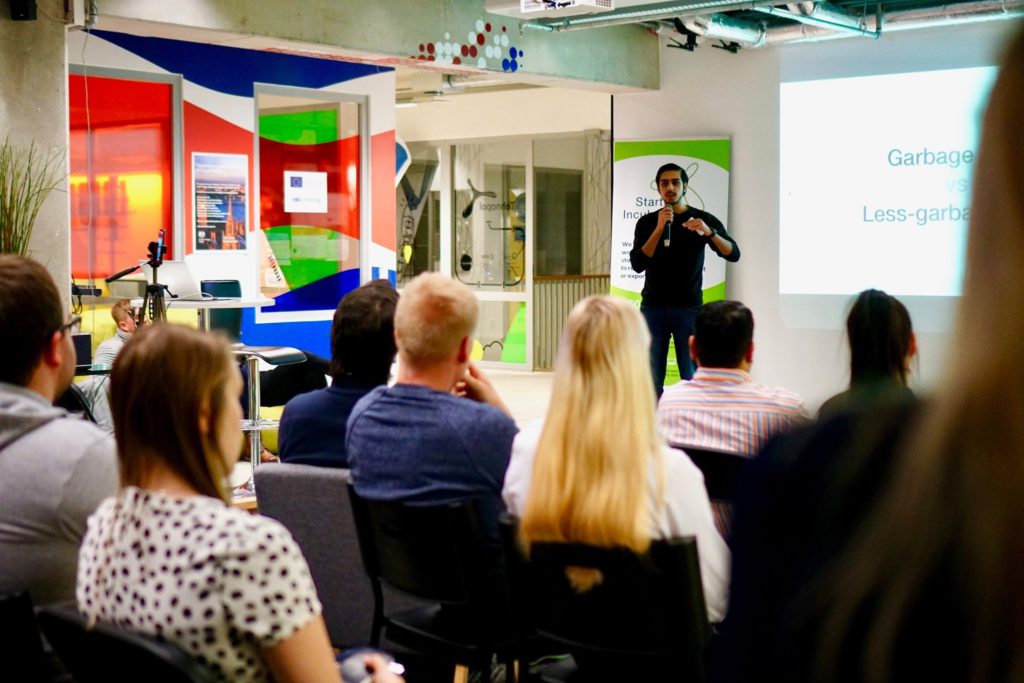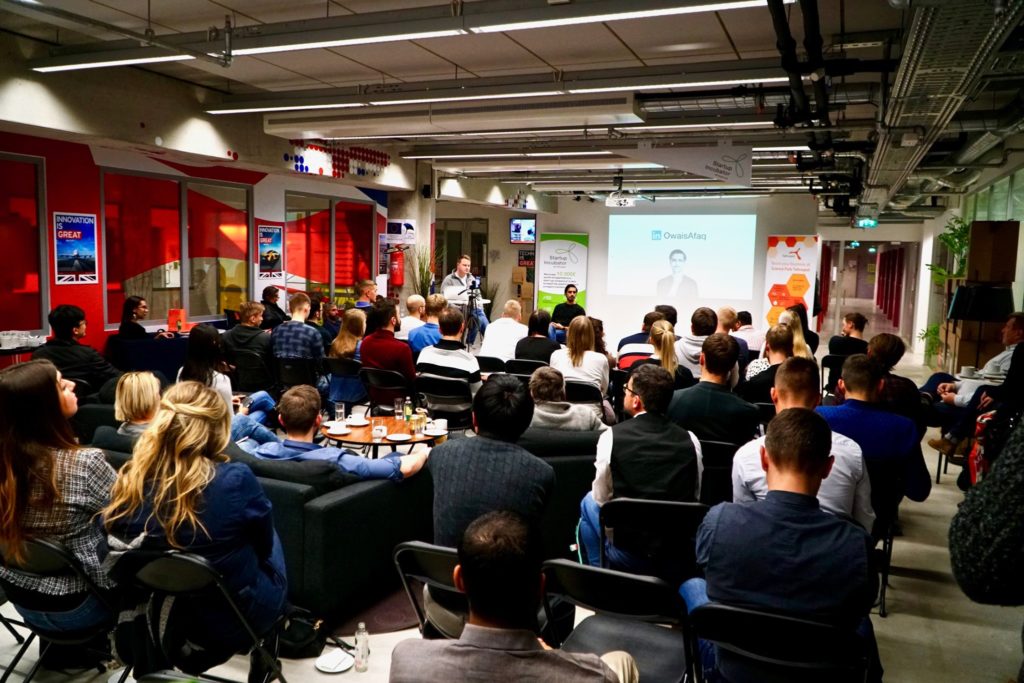04.12.2019
9 ways how to not fuck-up your startup

It’s been told that 9 out of 10 startups fail. That is a crazy number of dead startups when considering how many startups are being founded yearly in Estonia. Few days ago we hosted an event with a software development company Mikaels Labs, which helps to build MVPs for startups. Harry Kanistik (Partner&CEO) and Owais Afaq (Partner&CTO) from Mikaels Labs were sharing their long-time experience as entrepreneurs on which mistakes to avoid when doing business.

Harry has had several businesses before he founded Mikaels Labs and therefore many fuck-ups to share. Quite soon he understood that maybe he is too young to be an entrepreneur and doesn’t have all the necessary and right knowledge to be successful. He reccommends to have a 9-5 work or working in a startup before you start with your own business, since this will help to avoid all the fuck ups later in his opinion.
Harry shared some of his key suggestions how to not fuck up your startup:
- Founder with an idea. Harry said that one of the biggest and easisest fuck ups is that there is a founder with an awesome idea but he just won’t do it, since it seems like a risky business and it sure is. “You fuck up because you just don’t do it. Many people don’t take the necessary plunge to leave the safety net of a well-paying job and give wings to their startup idea, and that can be the biggest startup fuck up that you can make,” Harry explained.
- Team idea fit. When you already have a team and startups get 100 or 200 thousand euros investment, in this place most people, either you are not motivated. You are happy to have this money. People spend more money on conference than on building the product. Or there is a serious lack of skill.
- Problem solution fit. You understand what the problem is and you think you can solve it. You don’t have a product yet but you are getting there. Most crucial part, because when you are in this phase you need to be honest to yourself and listen to the customers, since they give so much valuable information.
- Product market fit. This is the magic place, where everybody wants to get. Many people ask how do I know if I get to this phase, well.. You just know. But most companies don’t get into this point, but if you do then there is a high chance that you will be successful.
- Harry said that one of the key learnings is that quantity over quality, which might sound a little weird but you shouldn’t spend 5 years on something that doesn’t work. You should rather move on and try with another idea until it feels like it grows. Also, rather start early, because it takes time and most people fail with their first startup.

Owais Afaq is a CTO, he shared his experience with “tech fuck ups” and how to build your product development team if you don’t have CTO or technical co-founder. Usually startups have an idea, which leads to human problems. Very often it doesn’t go as planned and you learn the hard way. These are his key learnings:
- Values vs technical skills. This part is very important, when you are hiring your first few technical team members. These people should know and be on the same level of values as you are, since you might not be able to pay them in the beginning. Finding people who are as obsessed as you are with user-experience is the key to continued success.
- Don’t do technical assessments by yourself. Don’t hire by yourself because it’s so easy for the programmer to talk crazy things in an interview when he realises that other person doesn’t know programming. And you will end up with hiring people who doesn’t know anything. And especially don’t hire just because he’s your friend. Ask for help from the consultant or hire the person who will to the hiring for you. The money you invest in this, it pays off in the long run.
- Communication. Developers need specification and a plan. And since the developers and salesperson don’t speak the same language, you need to be more specific: what are the challenges, how can I help, do you need some help? This will also raise the trust.
- Who is the product owner. We think that just because I had the idea, I am the product owner. But this is the biggest fuck up. Idea author is assumed to be the owner, but we have so much else to do. Product owner is somebody, who has an eye on a product development, can assist timelines, who can prioritise things, who is communicating to the business people, to the developers and between. Part time product owner and part time sales person – this is no good.

See the pictures of this event HERE.












